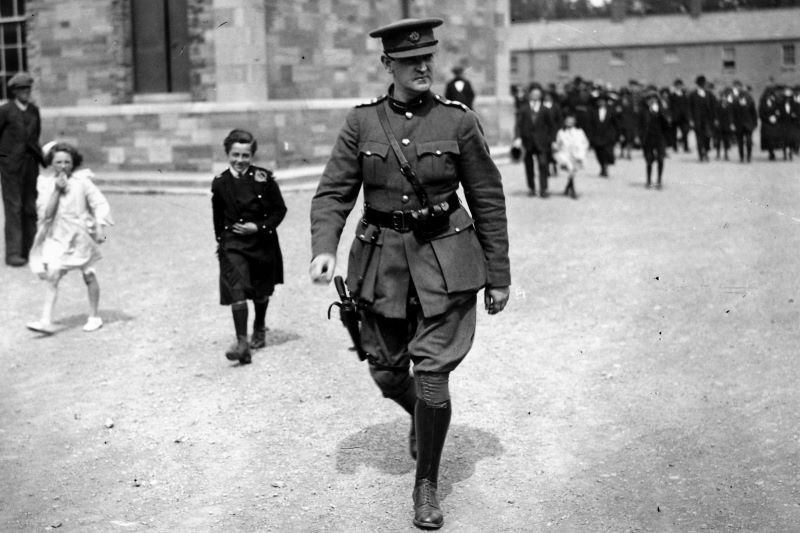This column comes to you from a very important person this week. I'm the owner of a bank. Difficult though it may be to believe, yours truly is now the owner of Anglo Irish Bank, the third largest bank in Ireland. And the way things are going, I could yet end up owning the two biggest banks in the country as well, Allied Irish Bank and Bank of Ireland. For the moment, however, I just own Anglo Irish. I'm not alone in my good fortune, of course. I share ownership of the bank with every other taxpayer in Ireland, because last weekend Anglo Irish was nationalized by the Irish government. Mind you, I don't just own the bank, I also own all its liabilities and debts. And on second thoughts, given what we now know about Anglo Irish, that is not something you could call good fortune at all. In fact you would not wish it on your worst enemy. The bank is a basket case. And now it's my basket case. Nobody asked us if we wanted to buy it, of course. The government just went ahead a few days ago and announced the nationalization. And we taxpayers (and probably our children as well) will be paying for it for a very long time to come. To be fair to the government, it had become clear that Anglo Irish was on the verge of collapse. Although much smaller than the two main banks here, that would still have had a catastrophic impact on banking in Ireland in general. So to avoid Anglo Irish doing even more damage, the government acted. Unfortunately, it now appears that their action has undermined the big two banks here even more. On Monday, the worst day in the Irish economy in living memory, the market reacted to the nationalization of Anglo Irish by withdrawing confidence in the big two, Allied Irish and Bank of Ireland. Shares in Allied Irish had reached €23.95 in 2007. They closed on Monday at 60 cent, down 59 percent on the day. Shares in Bank of Ireland were €18.65 in 2007. On Monday they closed at 34 cent, down 55 percent on the day. It was the blackest Black Monday ever here. What's going on? Why is Ireland facing financial meltdown? To understand what is happening we need to start with Anglo Irish. It had been in trouble for some time, mainly because (although a relatively small bank) it was a huge player in the property market, loaning hundreds of millions to individual developers. In fact it was known as the developers bank. Often the loans were for a high percentage of the notional final value of the developments, and the only collateral was the land being bought. With the collapse of the property market and land values - and particularly commercial property in which Anglo Irish was very active - the bad loans in Anglo Irish are now potentially enormous. Estimates vary from €3 billion to €15 billion euro. Getting this money back in the near future, if ever, is most unlikely unless there is a similarly crazy property boom in the coming years, and there is virtually no chance of that. So we, the taxpayers, will be left paying back the enormous sums Anglo Irish borrowed on the money markets. Much controversy followed the revelation in recent weeks that the former CEO and chairman of the bank, Sean Fitzpatrick, had, over an eight year period, taken out undisclosed loans of between €80 and €120 million to play the property and stock markets himself. He had avoided declaring this by "warehousing" the loans, shifting them to another small bank for a few weeks every year just before the auditors arrived for their annual visit. Each year he went through the routine, moving the borrowings so that his loans would not appear in Anglo Irish's annual report to its shareholders. This was outrageous, probably criminal behavior by the head of a bank, and it illustrated how wild things got here in the property boom. But sickening though it is, the scale of it is not that important in relation to the billions of bad loans on the books of Anglo Irish. But it was symptomatic of the cavalier way the bank had been run, and it had a devastating effect on both domestic and international confidence, leading to heavy withdrawals from the bank in recent days. That was what forced the government to nationalize the bank at the weekend. What has happened to Anglo Irish is a devastating exposure of what a bubble the Irish property boom was. Shares in the bank plunged from over €11 just 12 months ago to 22 cents at the weekend before nationalization was announced. That's some fall. But if you're a shareholder it's even worse than that. Now that the bank is being nationalized, the government has sent in an assessor and his report is likely to say the bank has little or no value, so the shareholders will get little or nothing for their shares. This made shareholders in the big two banks very nervous, especially the big institutional investors both here and abroad. The problem is that the Irish government seems to be drowning instead of waving as it tries to deal with the crisis here. You will remember that last September when the Anglo Irish problem became obvious, the Irish government responded by guaranteeing the deposits in all the banks here. That did not stop the slide in bank share prices, as international investors watched the Irish property bubble burst and decided to take their money out before the banks went bust as well. So the government responded a month before Christmas by announcing that it would recapitalize the banks by putting €1.5 billion into Anglo Irish and €2 billion each into Allied Irish and Bank of Ireland. This was done on an agreement that the two big banks would raise another €1 billion each in the markets, and the government said it would underwrite that extra billion as well. But the markets were not convinced. Irish bank shares continued to slide, because investors believe that even the big two have more bad property loans than they can handle and are seriously undercapitalized. The share price of the big two has now fallen to the point where the €3 billion the government is going to put into each of them would actually buy them outright. Initially the government had intended to put the money in as preference shares (getting a set level of interest but no voting rights), but it is now clear that the banks would not be able to pay the coupon, and so the investment will have to be in ordinary shares. This will dilute existing shareholders to the point where it becomes nationalization by another name. So we are looking at a situation which is so grave that the big two banks in Ireland could be nationalized as well. Up to now that has been unthinkable. But the nationalization of Anglo Irish last weekend shows that the unthinkable could actually happen. That's why the big players have been selling off their Irish bank shares and the shares have hit such an unbelievable low. It's crisis time in the Old Country. At breathtaking speed we have gone from being the best economy in Europe to the second worst. The international money markets are losing faith in our ability to recover. The price being charged to the Irish government for 10-year money is now the same as the rate being charged to Poland. We are the only country in Europe with a double-digit deficit, and whether we can continue to borrow enough to keep the show on the road is in doubt. We can get through this ... but boy is it going to be painful for ordinary people here. Watch this space.




Comments